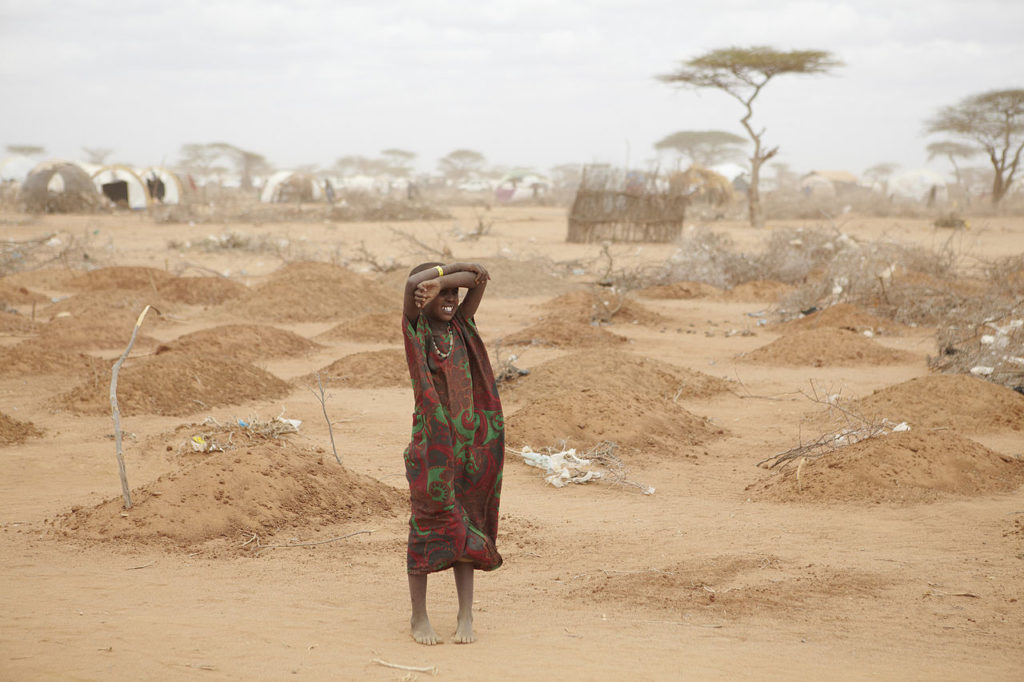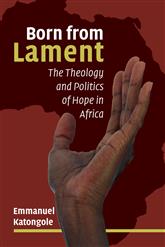
One of political theorist William Connolly’s challenges to the regulation of public speech by supporters of liberal secularism has been to expose the “visceral register” of political engagement. Rejecting the sequester of the emotional and embodied in the “private sphere,” he investigates how metaphysical commitments appear in our public life often through micro-politics of self-artistry. In other words, though some regulators of our public life seek to limit the conversation, metaphysical commitments often emerge anyway. Furthermore, these commitments often appear in the visceral register, through emotion, ritual, and art.
In his new book Born from Lament: The Theology and Politics of Hope in Africa, Emmanuel Katongole explores a constellation of manifestations of politics in a visceral register by analyzing the theology and politics of lament in East Africa. Tacking between theological and empirical analysis, Katongole gives an account of the hope that is within him, a hope that is rooted in the embodied and emotionally laden practices of lamentation.

Katongole’s book begins with the contradictions presented by the African encounter with modernity. The originary violence of colonialism produces a pendulum swing between pessimism and optimism. Katongole’s argument is, in part, that a theological account of the relationship between hope and lament can allow the transcendence of this contradictory dialectic. “In the midst of suffering,” Katongole argues, “hope takes the form of arguing and wrestling with God” (xvi). Lament as wrestling with God is not a private, or merely spiritual, matter. Rather, echoing here Connolly’s insight, Katongole argues that the visceral practices of lament are inescapably political.
Katongole’s book proceeds through a method of portraiture, juxtaposing biblical narratives with representations of concrete embodiments of lament in East Africa. This method produces a many sided prism, through which the central argument that lament and hope are irreducibly connected shines through. Katongole takes us episodically through multiple dimensions of lament—cultural, theological, political and more—and with each new episode we learn more about the texture of lamentation and why it is such a necessary practice.
In the following symposium, four commentators offer an insightful collection of observations, affirmations and critiques of Katongole’s work. Contending Modernities collaborator and Professor of Political Science at University of California Irvine Cecelia Lynch writes in her essay appreciatively regarding Katongole’s thick theological exposition. For her, this inescapably metaphysically laden account of politics is what the discourse of political science needs to make sense of the complex dynamics of political and social change in East Africa. She questions, however, whether Katongole has given adequate attention to the complex mix of religious dynamics present in the contexts out of which he writes. While she does not call him to cast off his unapologetic Christian theology, she asks Katongole to consider how Christians as Christians might make sense of the lament of those who don’t share their Christian faith. Whereas Lynch invites Katongole to consider the religious (and nonreligious) diversity of his context, Tinyiko Maluleke, Professor of Theology at the University of Pretoria, critiques Katongole for his lack of engagement with the rich, internally plural theological discourse occurring across Africa. Though Maluleke appreciates Katongole’s scriptural and empirical engagements, he worries that his claims about Africa writ large are too grandiose and in their “descriptive haste” miss important developments that may, ultimately, strengthen Katongole’s argument. Also in the vein of history, Paul Ocobock, Assistant Professor of History at the University of Notre Dame, wonders how the laments featured in Katongole’s work draw upon historical precedents. Ocobock celebrates Katongole’s departure from history, however, insofar as he disrupts the long and lachrymose characterization by the west of Africa as the “Dark Continent.” Finally, Professor of Catholic Studies at DePaul University William Cavanaugh pushes an affirmation made by both Ocobock and Lynch further to ask what the West stands to learn from Africa. Cavanaugh turns the gaze back on Western modernity and invites Katongole to critique the shallow optimism that animates late modern politics.
Each of these commentators raise significant questions for Katongole, questions which indicate, ultimately, the strength of his work for shifting the paradigm of our understanding the complex, context-specific ways in which modernity has collided with East Africa.
